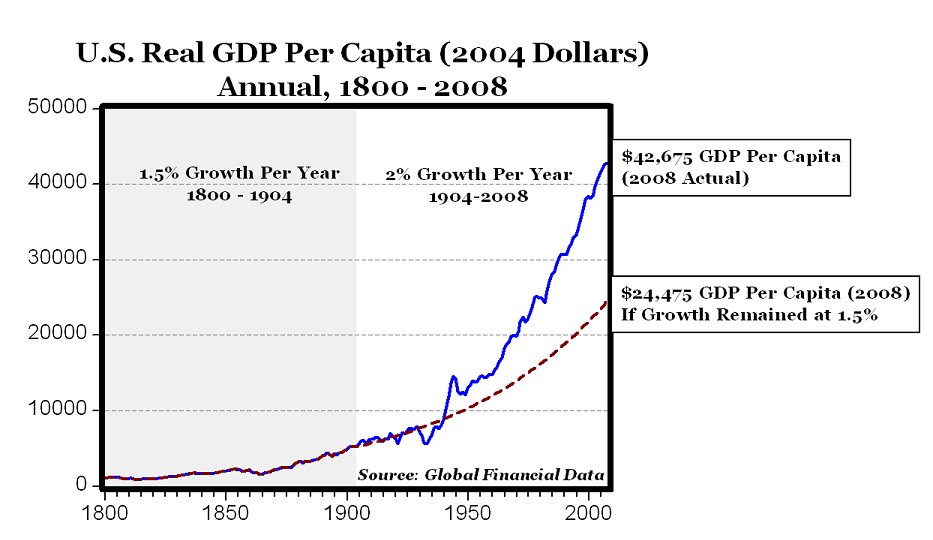The following depression was the Great Depression, which basically reversed a lot of the gains of the 1920s. So the short answer is none, since that was a whole generation later. But unlike the current depression, the Great Depression was a time of massive non-GDP growth. We had great innovations in technology and processes that helped allow the humungous war/post-war boom.
You are correct that the violent cyclical nature of pre-macroeconomics did a lot to effective reduce growth (if you lose 10%, to break even you need to gain 11%, and worse at higher losses etc). That period however enjoyed economic gains by grasping low-hanging industrialization fruit combined with the opportunity of kicking poor people into western states the moment they got discontent (Europe's answer to this was to colonize Africa) so even with the mega busts, we still had overall about 3% growth per year when you smooth over the peaks and troughs.
Since we created the heavy industries of mid 20th century, finished settling the land, ended imperialism, and watched the world catch up to us, we long passed the point of being able to get away with raw capitalism, which is one of the reasons I of course argue against the laissez-faire doctrine.




